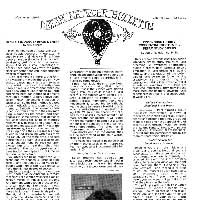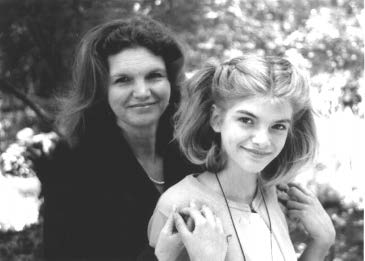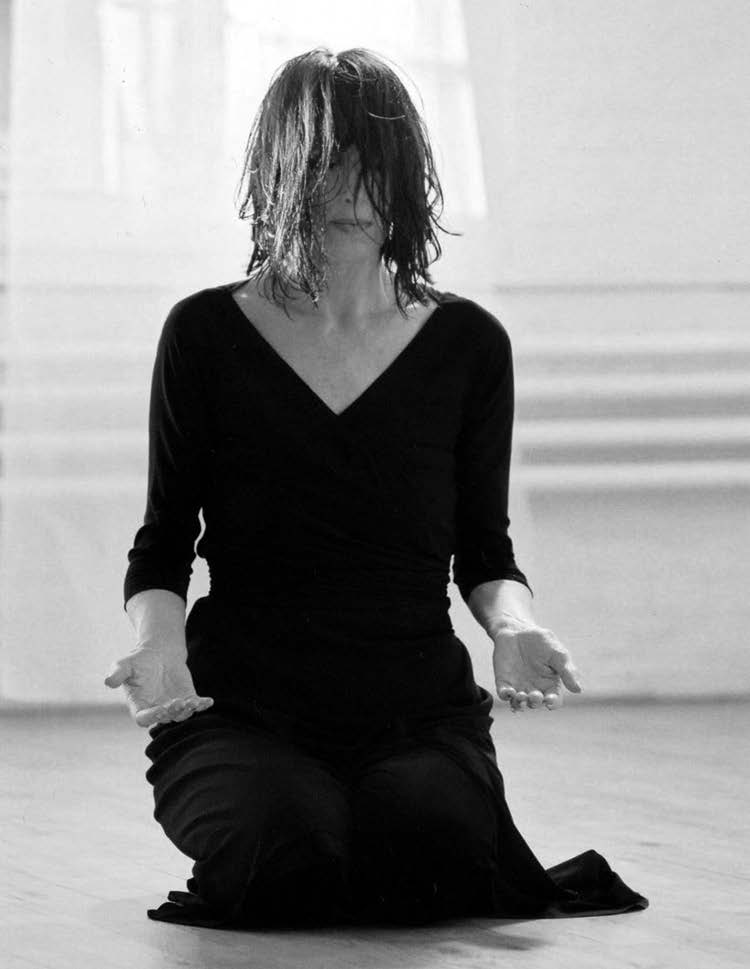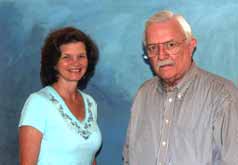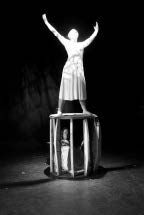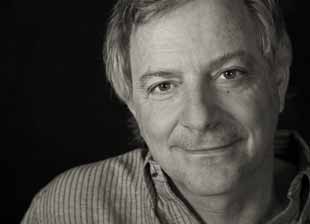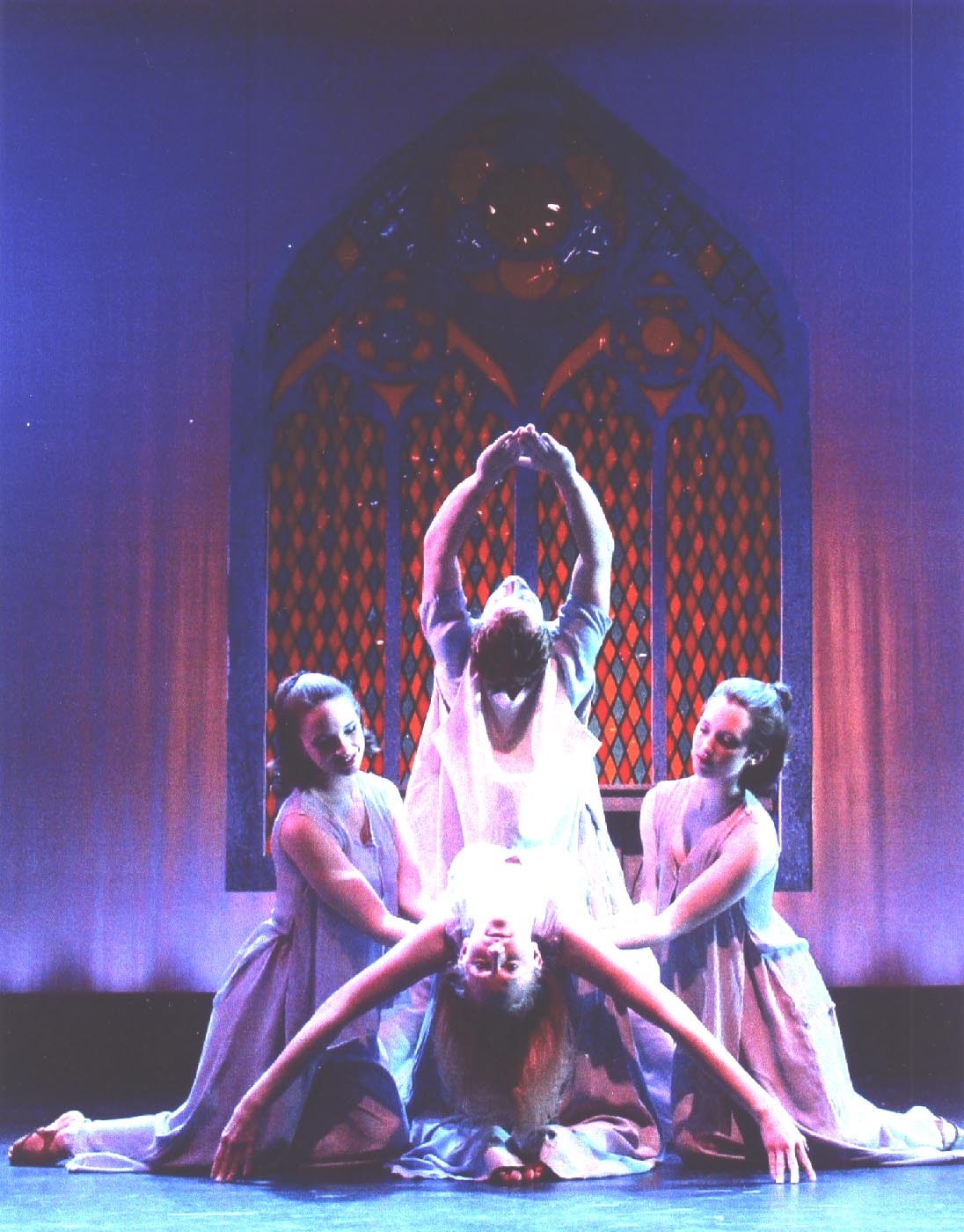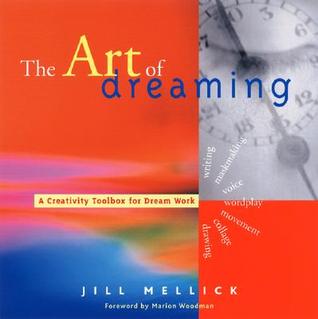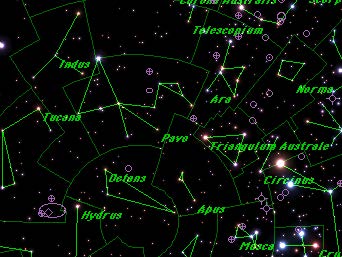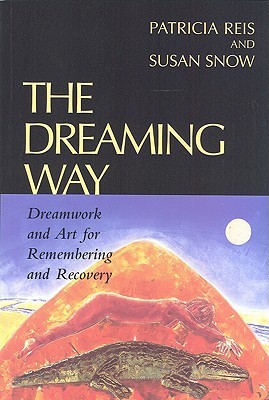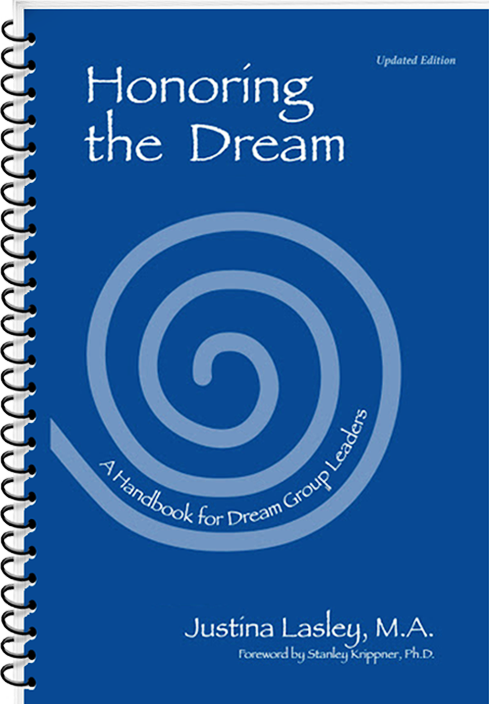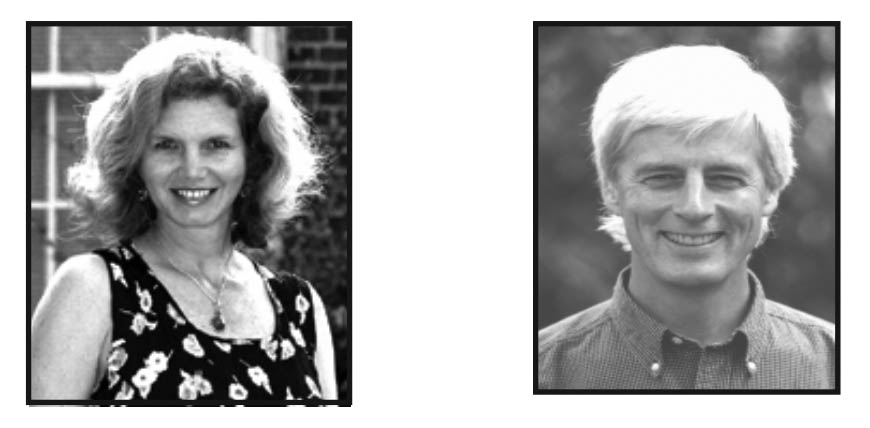
Jeanne Schul Elkins interviews Barry Williams at the Journey into Wholeness conference. (Part II of this interview appears in Volume 25 No. 3)
Barry Williams, M.Div., Psy.D., a Jungian analyst in private practice in Taos NM and Evanston IL, has had extensive experience in wilderness pursuits and experiential education, including eight years teaching with Outward Bound. He has a major interest in ritual forms that express the psyche’s participation in the archetypal wholeness which nature represents. He has been one of the leaders of the Temagami Vision Quest in Canada for 14 years.
Jeanne Elkins: Barry, one of the things you do is dream gathering. Could you talk about that?
Barry Williams: Well, Jean, the idea of dream gathering came to me from something I’d seen done at an international conference. People would gather early in the morning to share dreams and sit in a spiral. What we’ve brought here is the idea that if we pay attention to the dreaming process of the community, that we’re creating a container that contains the unconscious. It ritually contains the unconscious process of the community even though we’re just doing a fragment, perhaps one-tenth of the people participating, each day. This is holographic. It suggests the whole. There is a perception ritually that this material has a place to go, and thus is not running amuck through projections in the community. It is as if the unconscious in the community feels that it is being heard. When the gathering of the dreams is without any commentary, or with only a sentence of commentary to locate the meaning of the dream, the community has the experience of being listened to deeply. I act as the ritual elder figure, the one figure who is receiving, holding and understanding this material, even if I don’t in fact understand the dream. Ritually it’s the experience of being understood. It’s part of what we’re trying to accomplish in the whole conference: a complete ceremonial cycle. To assure psyche is being listened to deeply.
JE: Could you talk a little bit about that position you hold as ritual elder?
BW: I’m more of a ceremonial leader in a way, though I am not leading anything, exactly. There is a sense that someone has a foot in both worlds: in the waking, conference, relating, interpersonal world, and also a foot firmly in the dreaming unconscious, wild, natural world. A ritual elder is a bridging figure, someone who bridges between the gods and the mortal world, and someone who can travel back and forth between them. So listening to the dream, the message from the other world, and speaking to the dreamer in the same moment, connects the worlds together.
JE: You also hold that space and talk about a safe container, and it’s felt by those of us in the room. Can you help us understand about how you create that safe container?
BW: That’s a mystery, really. The idea is that I cannot do anything. My biggest contribution to a community like this is to try to create a container that is strong and safe enough so that the archetypal energies can constellate within the group. If the container is held correctly, there can be the possibility of some transformation, of healing, or of people getting across thresholds in their lives. The dreams can emerge in an ever greater way, perhaps. The container is built on trust and understanding and the community feels it. The more we establish trust, the more the community feels it and the stronger the container. The stronger the container, the more trust, until we can be a community that’s sharing its deepest truth. That’s an extraordinary event.
JE: Can you help us identify archetypal energy in our dream work? Sometimes you give feedback to the dreamer that you need to either pay attention to your dream or die. What are the red flags? Should we as the dreamers see the red flag ourselves?
BW: What I often say about dreams is that they exist on multiple levels at once. There’s the very personal, the historical, familial, the social, cultural, and what we’re calling archetypal: the realm of the gods. In the dream groups, what I’m striving for is not to have a therapeutic result, but that the healing potential in these groups will come from paying attention— not exclusively—to the archetypal ground of the dream. My feeling in this kind of work and dream-focused community is that we can have lived a moment of the experience of the ‘Great Mind.’ This is what I often call the mind of Nature itself (referred to in many ways in dreaming: the mind of the dream, the dreammaker, the Self, God). I prefer to call it the Mind of Nature, because it is that which is completely natural in its totality which is communicating through or to us—that is rising to consciousness. I like to pay attention to trying to get us to have the lived moment of the experience of that mind which is pure meaning, because it’s really the totality of things as it tries to come into the human realm. If we do not pay attention to it, we cannot live. When I use dramatic language like, “get this, or it will kill you,” it’s not that dreams can kill, but if we do not hear this voice, we cannot live. By living, of course, I mean we’re not living our complete lives.
JE: Often in dreams, animals manifest. Yesterday in the dream group work, the images of snakes and eggs showed up. Can you help us understand where we should go when we have animals appearing in our dreams?
BW: I think that the biggest mistake people can make, and often do make these days, is running to their animal symbol dictionary. I often counsel people to throw these dictionaries out. The best thing you can do to amplify the meaning of something is to understand what it is that this thing does. If we want to know about snakes, we need to think about snakes. What are snakes? How do they live? Where do they come from? What do they eat? What do they do in the seasons? etc. An indigenous person looks at an animal and knows everything about it: knows how it is, what it looks like, what it does every day of the year. The second thing to do is to understand any personal encounters. Maybe this person was bitten by a snake in childhood or had a traumatic encounter, or their mother was afraid of snakes. That would be crucial to know. Only then go to the cultural stories, and only then try to understand about meaning conceptually. If you read in the symbol dictionary that snake has qualities of this and that, then you’re starting to think about it. The snake or the animal in the dream, like the dream itself, has to have a kind of living presence in the discussion.
JE: So you’re approaching it from a much more intuitive level than an analytical level?
BW: Yes. That’s one of my favorite topics, thank you. My thoughts about dreams are not so much that we bring our considerable intellectual tools to a dream to use them to amplify what we’re seeing or what we know. The idea is not to bring it out of its realm like an animal out of the wild into the zoo, but also to allow ourselves to be drawn into its reality. That’s why I’m talking about the living presence of the meaning field of the dream. This field is not intellectually experienced. It’s almost like we’re the problem the dream is trying to solve. Of course that’s just the opposite from the way most people think about it: that the dream is presenting us this cryptic puzzle that we need to dissect and understand. You can do that, certainly, but usually that understanding only goes so deep. We waste the opportunity of a dream remembered if we only use it to try and understand our own lives, really, because there’s that other quality to it: that the dream is a living being, virtually.
JE: So when you’re working on a dream, are you seeing it as images? Is it a being? Is it an image?
BW: What I‘m looking for when I work on a dream is a subjective experience within me. I cannot teach a methodology about dream interpretation, I can only teach an attitude towards it, out of which would come a certain kind of methodology. If you teach a methodology, then you’re just getting a kind of cookie cutter assembly line. If you have the proper attitude, then the approach to the dream is quite different. What I look for in myself is an experience of an unfolding, that the meaning of it begins to rise up like the mist. It goes from static to alive. It’s possible this is my own ‘way,’ but it’s something that I can just feel. I feel it in every cell, the rightness and the meaningfulness of it. This is dangerously close to imposing my interpretation on the dream, but I try not to do that. I try to bring it out and let it be alive between us. When it’s alive between us, then we can watch and comment and not impose an interpretation. When you can feel that it’s alive and functioning— that you’re in the story, the dream has gripped hold of you—then the story comes alive in its meaningfulness. Meaning is always related to the energies of the Self.
JE: A lot of people dream about sex. One of the agendas that came up in the group dreamwork was a statement you made: Often in dreams, sex isn’t about sex, it’s about the life-force. Can you help us understand that? (mutual laughter)
BW: What else do you say? Sex of course is a frequent motif in dreams, but in my experience, it’s rarely anything to do with sex, sexuality, or with genital sexuality. What is the purpose of genital sexuality? In human beings, of course, it is for the purpose of life. From the psyche’s point of view, that’s essentially the intention. New life, of course, is not a child. It’s the energies of two opposites brought together to make the whole that generates new life. This happens between individuals, and it also happens within the individual. When we’re dreaming of that the classic conjunctio, it is for the purpose of all possible kinds of new life and soul emergence. The classic example, of course, is a man dreams of a very seductive woman who is not his wife. In the dream he thinks, “I can’t do this, because this isn’t my wife.” This is all very well and good in outer life, but what is he neglecting to connect with in his inner life? There’s this thought that it’s not okay to do this because we have this thing called monogamy. From the psyche’s point of view, there’s an energy that needs to be addressed or that is addressing him, and it’s nothing to do with sex. It’s to do with the life-force itself. That is what really wants to be activated, to be expressed, to find a channel, to find a union, and wants to result in creation.
JE: Along those lines, money is another issue that shows up. Your statement was, “Money is not about dollars.”
BW: Money is never about dollars in dreams. The dream doesn’t care how well off we are in life, it only cares about how much energy, how much “where-with-all” we have. Money dreams are more often images of the life force, libido, flow, fire, of spirit. Can we be a player in life? It’s not about consuming and purchasing and paying the bills. It’s about what we have available to us. The psychic world is about reciprocity and not about capitalism. Can we pay our way? Do we have enough? Are we impoverished? In other words, do we have enough to make the world happen around us and pay our way reciprocally with the other world?
JE: You often use the expression that the dreams are dreaming us. That’s thick.
BW: That’s a hard one. Well, Many, many people have the experience—at least occasionally, or once in their lives—of being the one who is moved. Sometimes in meditation, people will have the experience of being breathed. I have a friend who is a runner who says that something is running him. It really is the presence of the Self. One of the great notions in working with the unconscious is the experience of what Jung calls the relativization of the ego. The ego, the individual, suddenly experiences that s/he is not the master in her/his own house. You’re living in someone else’s house and that you are the moved to the mover. You would never say, “I created this dream,” or “This is my dream.” I/you/ego could not have created any dream in a million years. It’s impossible. It’s this great mind—or all of nature, the gods themselves—who are thinking and creating in this way. This is the way the Self thinks. We are the creation of this thought process. Most people think that you do something and then you dream about it. Sometimes it appears that way chronologically, but it’s probably the other way around. What we’re doing is what we’ve already dreamed or what is dreaming us. What we call our waking reality is the infinite variables of life coming together like the weather—virtually—in a single moment of what we’re calling reality, which is totally over-determined by the unconscious process. So in that way we are dreamed into being.
JE: You often warn us that when we are about to tell a dream, we are going to be telling everyone what we know least about ourselves.
BW: Well, dreams emerge from the unconscious. I always love the anecdote about Jung when he says apparently in some frustration, “You have to remember that what’s unconscious is unconscious.” In other words, it’s unknown. There’s only a small bit of the personal unconscious that we can actually make conscious. The rest is unconscious. It’s unknowable. When a person has a dream, it’s the unknown that is emerging toward consciousness. A nice point about dreaming is that by the time you’re dreaming of something, it’s well on its way to consciousness. It’s when you’re not dreaming of it that it’s running you unconsciously. If you’re dreaming about it, it’s on its way towards consciousness and that’s when you can bring it out and learn a little bit. So if a person tells a dream in a group, by definition he or she is saying what they don’t know about themselves. Thus it’s a very fragile offering and needs to be respected as such. That’s why I caution people that it’s not hunting season—it’s not open season on the dreamer. They’re not fair game for your projections, because it’s a very delicate, fragile, vulnerable place in which they’ve put themselves. They’re offering something that’s unique and beautiful which deserves and needs to be deeply respected.
JE: Barry, can you talk a bit about your process of working with dreams in your professional practice? BW. Rather than me being the guide of the process, I’m letting the unconscious, the dreams, largely be the guide in terms of what we discuss. All the great motifs will be there. Over a long period of time, if the person can be related to this magnificent fabric of meaning that contains their personal lives—and at the same time displays all of the wonders of heaven, as it were—then this lends tremendous dignity and depth. That’s where the healing can come from. Jung was very clear on that. So in other words, when the archetypal worlds manifest through the dreams—and I believe that’s the way a person can connect with it—then the emotional result around that is healing. It’s the emotion that one experiences in the body that infuses the person, the whole selfhood of the person, with the transpersonal energies of the archetypal world. When that happens, each in its unique way, then lives can be changed.
JE: Can you talk to us about those dreams that are so visceral that we wake up feeling physically the person we were carrying or where our hand just was… a kind of belief that it really did happen?
BW: It really did just happen. (laughter)
BW: Those are the dreams that we’re drawn into deeply. The attempt of the dreamer upon waking is often to get away from that. “Let me separate from that reality.” But the point is that the dream had you.... it was having you, as if it put you to sleep to have you. In some of those moments, you’re completely enmeshed in the reality of that world and it’s hard to return or to move out into ordinary consciousness again, because the energy of the meaning of the dream, for whatever reason, is extremely strong at that point. It’s really got you. It’s hooked you. These are special dreams. They are the ones that leave trails behind them in your life and are to be respected and given full attention.
JE: Where does one go with those dreams other than to an analyst?
BW: It’s a great question. To an analyst, of course. The analyst is not only the one who can try to help you understand these things, but then also becomes a kind of initiating elder. When great dreams announce the journey you’re undertaking, you need to have a guide, because it’s an initiatory journey. Initiation is an archetypal pattern that always requires a death through an ordeal and a rebirth of some sort. Of course lots of people analytically think, “Give me the rebirth. Give me the new life. I can’t wait,” and they forget that there’s a death required, which is often, if not always, excruciating. Death is death. It’s hard to let go of an old pattern, an old identity, an old history, the old drama, the old story, the old way of being, or the old vocabulary. It is very humbling because you can see how the psyche is trying, in the absence of a cultural initiation pattern, to initiate the dreaming person.
JE: Do you see a pattern with time of life, with people who come to see you when these kinds of dreams erupt?
BW: One of my favorite things in the last couple of years is to work with some young men and women who have gone to northern Hudson Bay on expeditions to encounter the Grandfather of the North. This is the place in many traditions where dreams come from and a great place of wisdom. I sit with them on their last campsite and listen to their dreams. This is a lost age group. They’re leaving adolescence and trying to emerge into young adulthood. The educational system and the government, the family and the culture—everybody is saying something—but what is the real pathway to the authentic life? A lot of people lose their way at this point. They decide to do something that seems okay, but it might not be well supported from the unconscious, and they will burn out at some point. I liken it to this: in the Pueblo world of the southwest, when the masked gods or the dancers enter the plaza (because these are archetypal figures... they’re not human beings any more) the ritual leader of the ceremony lays down a pathway on the ground for them, often of corn pollen or cornmeal, to walk on. I think youngsters’ dreams are like that. These are like the pollen pathways for them. If they can hear them, the dreams will open the pathway into their lives.
JE: There seems to be a lack of any form of initiation at any change of life in our culture. I’m wondering if dreams...
BW: The answer if yes! Absolutely. Absent a cultural container for these rights of passage, it’s up to the psyche, really, to do it. Good ritual is about aligning the individual psyche with Nature and the Nature’s way. When these are aligned, then you’re doing something, often culturally... as it was in the beginning. The way it was in the beginning is the pure way of the psyche. If we no longer have this, and what’s worse, if we’ve lost our access to it, the psyche will still be going ahead with its attempts at alignment. It can feel crazy-making. If a person were part of a group that had done an initiatory process at an age-appropriate time, it would be a tremendous experience. When they’re doing it by themselves in the midst of a social environment that doesn’t support it, it can be quite difficult. You can see vestiges of rituals gone terribly awry in the acting out behavior of adolescents, gangs and so forth. The point is, in the classic initiatory pattern the ordeal is for the purpose of moving out of the old place and getting into a place where you can be connected to what we’ll call the archetypal realm. If we don’t do that in our lives, if we have lost the connection to the source-place of that realm, then we don’t know how to live. We get lost. In the Plains culture, a person without a vision is not a human being. They’re just people living their lives, but they’re not a real human being.
JE: Do we have permission to not necessarily understand our dreams as long as we sit with it or go back to it?
BW: At the very least, pay attention. Acknowledge that the dream world does exist, that it is communicating with you. Write your dreams down You can draw them, paint them, sculpt them, dance them, do active imagination with them, sit with them, meditate on them. Just let them infuse you—even if you don’t understand them—because it’s usually not something you can get with your mind, in so many words anyway. At the very least, live with the knowledge that this process is going on. One of the techniques I use is to imagine we’re camped by a great river and it’s flowing by all the time, day and night, day after day, year after year, millennia upon millennia. From time to time we go down and dip our cup into it and drink from it, or use it to cook our meals, or bathe in it, or take and use the water for our crops. It’s only from time to time we go to the river; meanwhile it is powerfully flowing by... all the time. ℘



